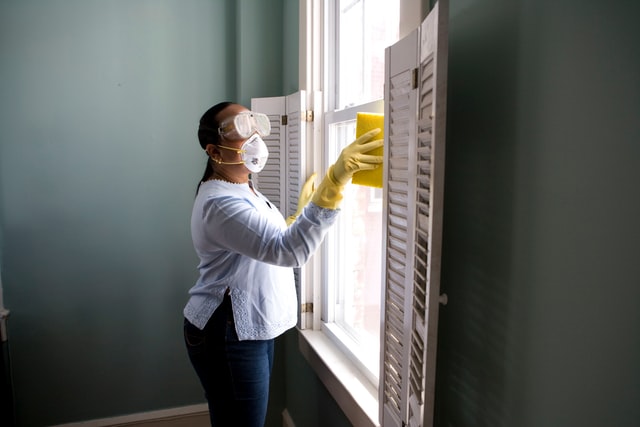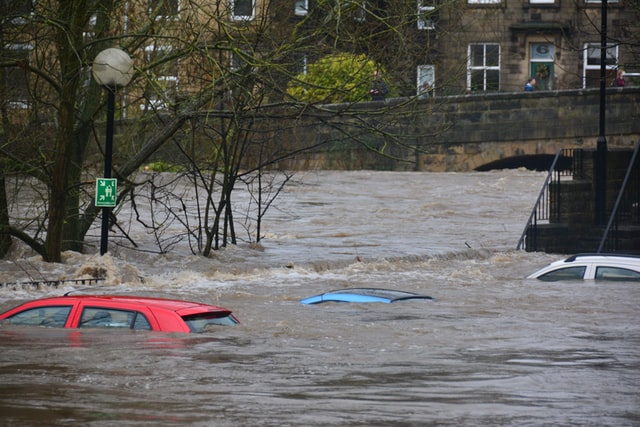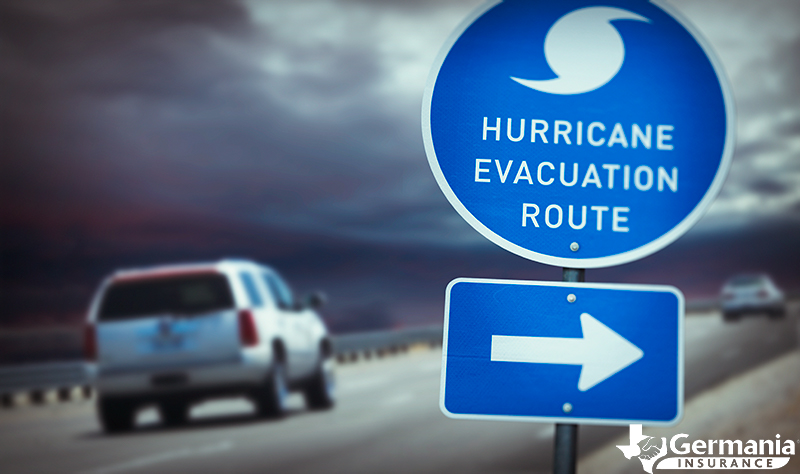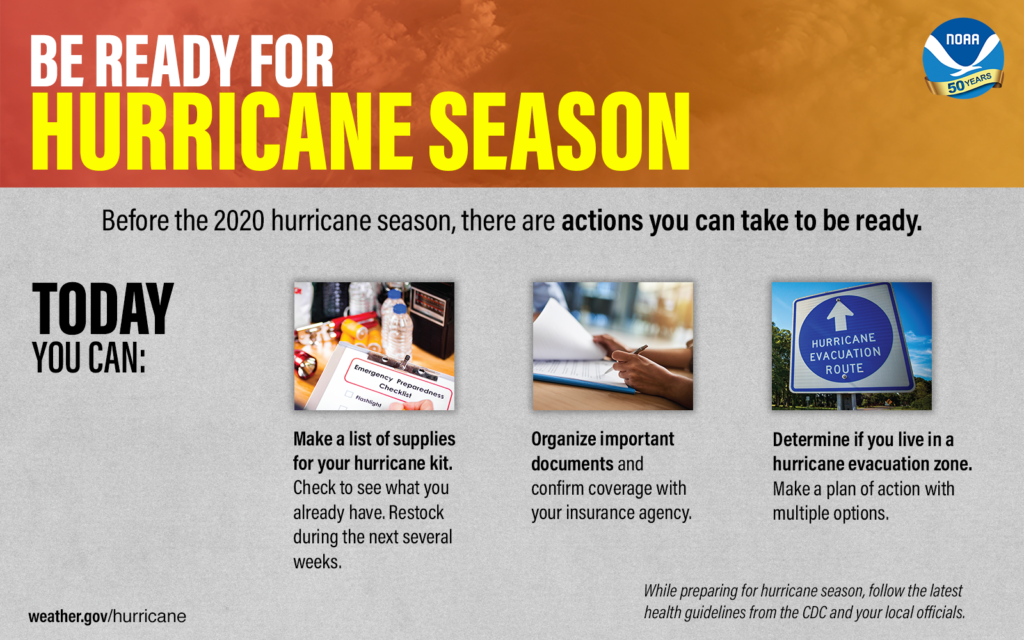What To Do After a Storm
Tips and Resources on Post-Hurricane Disaster Efforts
Mandatory evacuation orders are in effect for Jefferson County as Hurricane Laura blazes toward the region. Now is a good time to review your storm preparation plans and make any last minute updates.

|TIP| There’s still time to do some Hurricane Preparedness before Laura hits Southeast Texas and Southwest Louisiana. If you can, take the opportunity to do so right now.
STEP ONE: HAVE THE RIGHT GEAR
Cleaning up after a disaster can mean facing a wide range of hazards, from contaminated water, to animals and insects, to splintered wood and sagging ceilings.
At a minimum, everyone who helps with clean up and repair should wear long pants, long sleeves, sturdy shoes, and work gloves. They may also need specialized equipment such as an N95 mask if dealing with mold or potential asbestos hazards. Read more at RedCross.
|TIP| Be vigilant and mindful that COVID19 is still an ever-present concern. It may impose limitations on if/when resources for aid/assistance are available after the storm.
STEP TWO: ASSESS THE DAMAGES
When it is safe to do so, walk around your property to assess the damages. Take photos and notes of any physical damage from storm debris and wind force, as well as water damage from flooding.
Once you have a clear idea of the damages, then you can work on a plan for tackling the cleanup process. Determine if you will need special equipment, such as a chainsaw or roll-off dumpster for debris.
You should also make arrangements for getting additional help or possibly finding a team of helpers for moving heavy or bulky items and objects.
|TIP| Some water facilities such as sewage may be interrupted after the storm. If you are in need of portable toilet or hand-washing stations, be sure to make arrangements in time for cleanup work to begin.

STEP THREE: GET TO WORK
Cleaning up your home can be a big job. Be sure to pace yourself and remember to take breaks when you need to. Stay hydrated. You should also prioritize which tasks to handle first based on how important they are.
|TIP| Check out CDC Hurricane Safety Tips and Resources for more information.
Be sure to open windows and doors when there has been water damage or is risk of mold. This is also an important step if you are using harsh chemicals such as bleach, which should never be used in a closed space.
Beware of electrical hazards while you work and steer clear of any power lines that have been damaged. Do not work if you smell natural gas and instead contact emergency services.
>>>>Reminders

Now that we’ve given you some handy post-storm advice, here are some important and potentially life-saving reminders about cautions during and immediately after a hurricane.
- Most importantly, EVACUATE if you are able. Make it a priority.
- If you can’t, remember to stay indoors during the storm and away from doors and windows. Do not go outside during a storm.
- DON’T get in the water or talk on the phone, as both make you prone to lightning injury even inside your home.
- Turn Around, Don’t Drown! Especially when driving. Each year, more deaths occur due to flooding than from any other thunderstorm related hazard. Read the warning signs here.
- Flooding after a storm will likely persist for days. Please AVOID floodwater as it is often full of harmful debris & dangerous bacteria.
- The National Hurricane Center projects that Laura is expected to produce life-threatening storm surge*, extreme winds, and flash flooding over eastern Texas and portions of Louisiana.
*Storm Surge is the rising of the sea level due to the low pressure, high winds, and high waves associated with a hurricane as it makes landfall. The storm surge can cause significant flooding and cost people their lives if they’re caught unexpected.
|TIP| You can listen for weather updates on LOCAL radio station info even on your Android or iOS devices with apps like TuneIn and Simple Radio (both are free).


